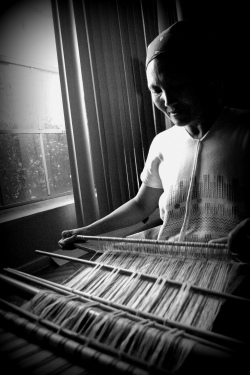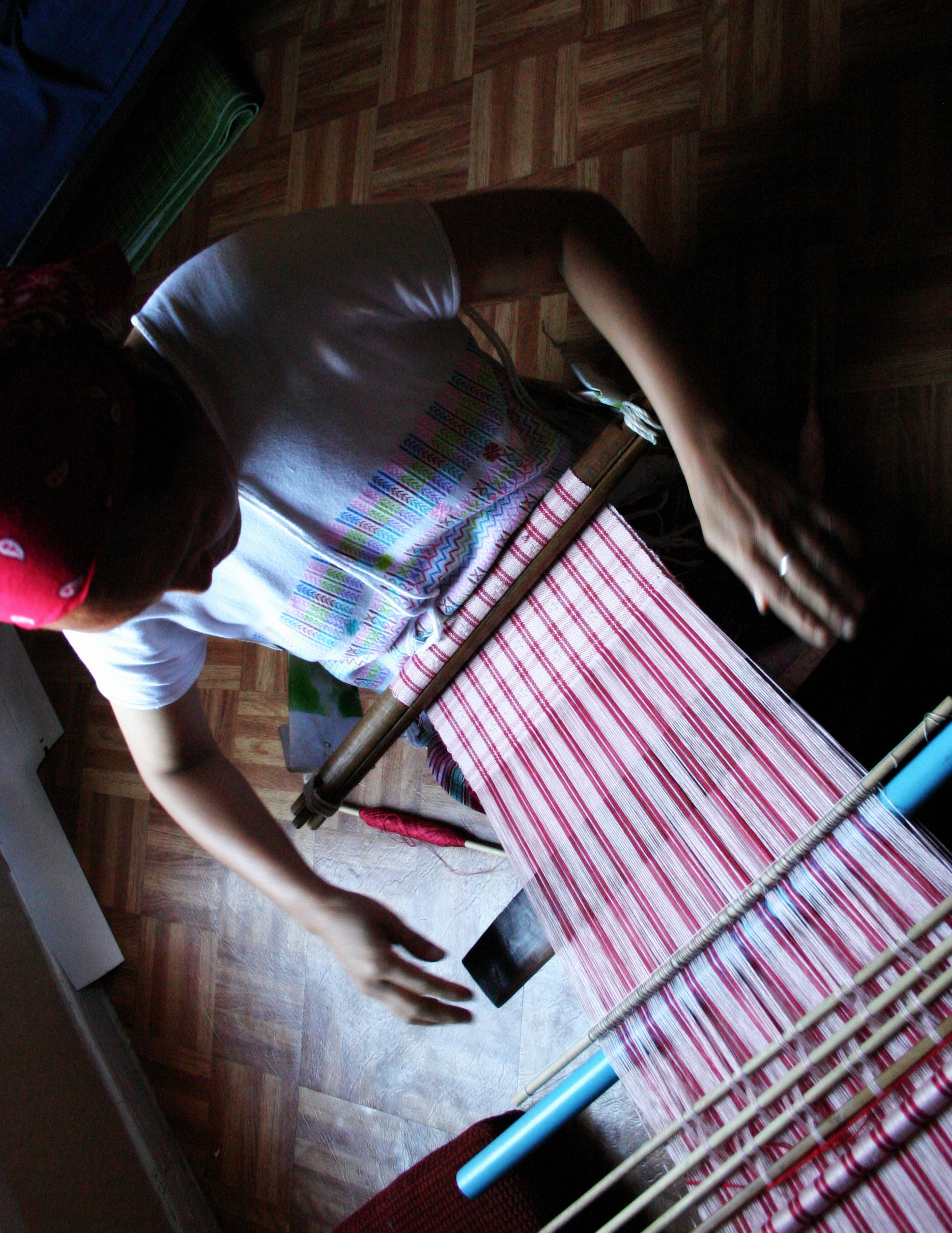A glimpse of what "Common Threads" means to Vox Culture
 Tuesday, October 23, 2012 at 9:13AM
Tuesday, October 23, 2012 at 9:13AM We wanted to capture her reality, beyond the words “refugee” or “artisan”, in order to see her for the woman she is.
Interview with Moo Htoo conducted by: Alissa Kit, Viktor Kopic, and Irena Liang.
Many thanks to Roxanne Paiva (co-founder of the Community Cloth) and Mary Say who made it happen.
---
Just minutes after stepping foot into the apartment complex in Southwest Houston where Moo Htoo lives, we realized we weren’t just visiting one refugee family, but that an entire community had relocated here where we call home. But did Moo Htoo, her family, and friends have a different perspective on life in Houston? That’s what we wanted to find out.
We entered the apartment where we were greeted by Moo Htoo and a few others: among them, Mary Say, our translator. Almost immediately, Moo Htoo lets Roxanne know what she needs to continue weaving more hand-made products. This is when we got our first taste of the ingenuity that goes into her work, the kinds of tools she uses, and her dedication; which led me to wonder what her motivation was.
Moo Htoo has six children, one of whom is married and has a child. She herself has been married for 27 years. She was raised in Burma, but when the war destroyed all that she knew, she left her home and found herself in a refugee camp. In Thailand, where she spent the next seventeen years, she learned how to weave. It really wasn’t something that appealed to her at first, but since it provided a means to send her children to school, Moo Htoo decided to give it a shot. She had only been a trainee for two months when she found herself weaving faster than the others, eventually even inventing her own floral patterns. As the years passed, one thing was never forgotten: the camp is not home. Imagine raising your children within the confinement of barbed wire, labeled as illegal aliens, and unaccepted by local citizens. In fact, the term that refugees were called meant “people with no place to be”.
Refugees must apply for resettlement and, if chosen, are then relocated to that country. The United States currently takes in more refugees than the rest of the traditional resettlement countries combined. That’s how Moo Htoo and her family ended up here in Houston, Texas. When asked how she liked it here, she responded lightheartedly, “If you say a place is good, then it is good.” In fact, Moo Htoo actively chooses to search for what she enjoys here. For example, she likes to listen to gospel music. She currently attends a Baptist church that meets in another apartment.
What do you want your children to know?
To always look up to the educated and the wise, so as to never have to go through what I went through.
What is the most important thing to you?
My health. If I can work, then I can survive. If I have money but I am not healthy, it means nothing.
Do you ever feel like giving up?
Sometimes, yes. Because I am human.



Reader Comments